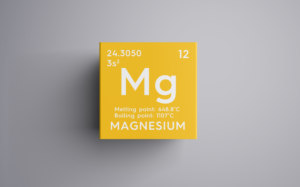
With stress and anxiety commonplace among our fast-paced and hectic society, it’s only naturally we look for ways to unwind and find balance. This is why natural remedies such as L-Theanine are gaining popularity. L-Theanine, a unique amino acid found in tea leaves, particularly in green tea, is known for its calming effects, without causing drowsiness, making it an appealing choice for those looking to manage stress and improve focus.
In this post, we look into the science behind L-Theanine as well as explore its numerous health benefits.
What is L-Theanine?
L-Theanine is a non-protein amino acid primarily found in tea leaves, especially in Camellia sinensis, the plant from which green, black, white, and oolong teas are derived. It was first discovered in 1949 and has since been the subject of numerous studies exploring its effects on the mind and body.
One of the key ways L-Theanine exerts its effects is by increasing levels of neurotransmitters in the brain, particularly gamma-aminobutyric acid (GABA), serotonin, and dopamine.
GABA is known for its calming effects, helping to reduce feelings of anxiety and promote relaxation. Serotonin is often referred to as the “feel-good” neurotransmitter, playing a role in mood regulation and overall sense of well-being. Dopamine is involved in reward-motivated behavior and is associated with feelings of pleasure and satisfaction.
What is Gamma-aminobutyric acid (GABA)?
Gamma-aminobutyric acid (GABA) is a naturally occurring neurotransmitter in the brain that plays a key role in regulating neuronal excitability. It is the primary inhibitory neurotransmitter in the central nervous system, meaning it helps reduce the activity of neurons and dampen nerve impulses. This action is important for preventing overexcitation of the brain, which can lead to anxiety, stress, and seizures.
GABA works by binding to specific receptors on neurons, known as GABA receptors. When GABA binds to these receptors, it opens ion channels in the neuron’s membrane, allowing chloride ions to enter the neuron. This influx of chloride ions hyperpolarizes the neuron, making it less likely to fire an action potential and reducing its excitability.
Low levels of GABA or dysfunction in GABAergic neurotransmission have been associated with various neurological and psychiatric disorders, including anxiety disorders, depression, epilepsy, and sleep disorders. Enhancing GABA activity, such as through the use of GABAergic drugs or natural compounds like L-Theanine, can have calming and relaxing effects, making it a target for therapeutic interventions in these conditions.
What is Serotonin?
Serotonin, also known as 5-hydroxytryptamine (5-HT), is a neurotransmitter that plays a crucial role in regulating mood, emotions, sleep, and appetite. It is primarily found in the gastrointestinal tract, blood platelets, and the central nervous system (CNS).
In the CNS, serotonin is synthesized from the amino acid tryptophan and is primarily produced in the raphe nuclei, a group of nuclei located in the brainstem. Serotonin is involved in various physiological processes, including the regulation of mood, appetite, and sleep. It is also involved in cognitive functions such as memory and learning.
Serotonin exerts its effects by binding to specific receptors, known as serotonin receptors, located on the surface of target cells. There are several subtypes of serotonin receptors, and each subtype is associated with different physiological effects. For example, activation of serotonin receptors in the brain is associated with feelings of well-being and happiness, while activation of serotonin receptors in the gut can regulate intestinal motility and secretion.
Low levels of serotonin have been linked to depression, anxiety, and other mood disorders. Drugs that increase serotonin levels, such as selective serotonin reuptake inhibitors (SSRIs), are commonly used to treat these conditions. However, maintaining a healthy lifestyle, including regular exercise, adequate sleep, and a balanced diet, can also help support serotonin levels naturally.
What is Dopamine?
Dopamine is a neurotransmitter that plays several important roles in the brain and body. It is involved in reward-motivated behavior, pleasure, movement, and the regulation of mood. Dopamine is produced in several areas of the brain, including the substantia nigra and the ventral tegmental area.
In the brain, dopamine is known to be involved in the brain’s reward system, which reinforces certain behaviors and motivates us to do them again. For example, when we eat food or engage in activities that are pleasurable, dopamine is released, creating a sense of reward and encouraging us to repeat those behaviors.
Dopamine is also involved in regulating movement and coordination. A deficiency of dopamine in certain parts of the brain is associated with movement disorders such as Parkinson’s disease, which is characterized by tremors, stiffness, and difficulty with movement.
In addition to its role in reward and movement, dopamine is also involved in regulating mood. Low levels of dopamine have been linked to depression, while high levels of dopamine have been associated with schizophrenia and other psychotic disorders.
Overall, dopamine is a key neurotransmitter that plays a critical role in many aspects of brain function and behavior. Dysfunction in the dopamine system has been implicated in a variety of neurological and psychiatric disorders, highlighting its importance in maintaining overall health and well-being.
What Are the Benefits of L-Theanine?
L-Theanine, an amino acid found in tea leaves, has garnered attention for its potential health benefits, particularly in the realm of stress management and cognitive function. Research suggests L-Theanine offers a range of advantages, from reducing stress and anxiety to improving focus and sleep quality.
Stress and Anxiety Reduction
L-Theanine has been studied for its calming effects, which are thought to be mediated through its impact on neurotransmitters in the brain. By increasing levels of GABA, serotonin, and dopamine, L-Theanine may help promote relaxation and reduce feelings of stress and anxiety. Studies have shown that individuals who consume L-Theanine experience a reduction in stress-related symptoms and improved mood.
Improved Focus and Attention
In addition to its calming effects, L-Theanine may also enhance cognitive function, particularly in the areas of focus and attention. Research suggests that L-Theanine can increase alpha brain waves, which are associated with a state of relaxed alertness. This unique effect of L-Theanine may help individuals maintain focus during tasks that require mental acuity. Some studies have even suggested that L-Theanine can counteract the distracting effects of noise, further enhancing cognitive performance.
Sleep Quality Enhancement
L-Theanine has been investigated for its potential to improve sleep quality, with promising results. By promoting relaxation and reducing anxiety, L-Theanine may help individuals fall asleep faster and experience deeper, more restful sleep. Studies have shown that L-Theanine supplementation can improve sleep efficiency and increase overall sleep quality, making it a valuable tool for those seeking better sleep.
Mood Enhancement
L-Theanine’s impact on neurotransmitters in the brain may also contribute to mood enhancement. By increasing serotonin levels, L-Theanine may help improve mood and reduce symptoms of depression. Some studies have suggested that L-Theanine supplementation can lead to improvements in overall mood and feelings of well-being. Additionally, L-Theanine’s calming effects may help reduce irritability and promote a sense of calm, further enhancing mood.
What Are Alpha Brain Waves?
Research suggests that L-Theanine can increase alpha brain waves, which are associated with a state of relaxed alertness. So what are alpha brain waves?
Alpha brain waves are neural oscillations in the frequency range of 8–12 Hz (cycles per second) that are commonly observed in the human electroencephalogram (EEG). These waves are typically present when a person is awake but relaxed and not actively processing information or engaged in mental tasks.
Alpha waves are often associated with a state of relaxed alertness and calmness. They are most prominent in the posterior regions of the brain, such as the occipital and parietal lobes. Alpha waves are also associated with the “idle” or resting state of the brain, where the mind is not focused on any particular task.
Research has shown that alpha waves can be influenced by various factors, including meditation, mindfulness, and relaxation techniques. For example, experienced meditators tend to have higher levels of alpha activity, suggesting a state of deep relaxation and focused attention.
In addition to their role in relaxation, alpha waves have also been associated with creative thinking and problem-solving. Some studies have suggested that increased alpha activity may facilitate the integration of information from different brain regions, leading to enhanced cognitive abilities.
Overall, alpha brain waves play an important role in regulating the brain’s state of arousal and are thought to be involved in various cognitive processes, including attention, relaxation, and creativity.

Beyond Relaxation: Exploring the Diverse Benefits of L-Theanine
In addition to its well-known calming effects, L-Theanine has demonstrated a range of other beneficial properties that contribute to its status as a versatile supplement for overall health and well-being.
Synergistic Effects with Caffeine: When combined with caffeine, L-Theanine has been found to produce synergistic effects that enhance cognitive function. While caffeine is known for its stimulating effects, it can also cause jitteriness and anxiety in some individuals. L-Theanine helps to counteract these negative side effects, promoting a state of alertness and focus without the accompanying jitters.
Neuroprotective Properties: Emerging research suggests that L-Theanine may offer neuroprotective effects, potentially protecting the brain from damage and supporting cognitive function. Studies have shown that L-Theanine may help protect against age-related cognitive decline and improve memory and learning abilities.
Stress Management in Clinical Settings: L-Theanine has been studied for its effects on stress management, particularly in clinical settings. Research has shown that L-Theanine can reduce physiological markers of stress, such as heart rate and cortisol levels, helping individuals cope with stressful situations more effectively. These findings suggest that L-Theanine may be a valuable tool for managing stress and anxiety in clinical settings.
Potential Applications for ADHD: While more research is needed, early studies have shown promising results for the use of L-Theanine as a complementary treatment for ADHD. L-Theanine has been found to improve focus and attention in individuals with ADHD, suggesting that it may be a safe and effective alternative or adjunct to traditional ADHD medications.
L-Theanine offers a range of benefits beyond its calming effects, making it a valuable supplement for promoting cognitive function, stress management, and overall brain health. Further research is needed to fully understand the mechanisms behind these effects and to explore additional potential applications for this versatile compound.

Potential Side Effects and Precautions
L-Theanine is generally considered safe for most people when taken in appropriate doses, with few reported side effects. However, some individuals may experience mild adverse reactions, including headaches, dizziness, or gastrointestinal upset. These side effects are typically rare and are more likely to occur at higher doses.
It’s important to note that while L-Theanine is generally well-tolerated, individual responses may vary. Some people may be more sensitive to L-Theanine and may experience side effects even at lower doses. If you experience any adverse reactions while taking L-Theanine, it’s recommended to discontinue use and consult with a healthcare professional.
Additionally, certain precautions should be taken when using L-Theanine, especially for individuals with specific health conditions or those taking medications. L-Theanine may interact with certain medications, such as blood pressure medications or stimulants, so it’s important to consult with a healthcare professional before starting L-Theanine supplementation, especially if you have underlying health conditions or are taking medication.
Pregnant or nursing women should also exercise caution when using L-Theanine, as there is limited research on its safety during pregnancy and breastfeeding. While L-Theanine is generally considered safe, it’s always best to err on the side of caution and consult with a healthcare professional before using it in these populations.
While L-Theanine is a relatively safe supplement with few reported side effects, it’s important to use it responsibly and under the guidance of a healthcare professional, especially if you have specific health concerns or are taking medication
L-Theanine: Unlocking Nature's Calming Secret
L-Theanine is a fascinating compound with a range of potential health benefits. From its ability to reduce stress and anxiety to its impact on cognitive function and mood, L-Theanine offers a natural and effective way to support overall well-being. Its unique mechanisms of action, including the modulation of neurotransmitters in the brain, make it a valuable tool for those looking to manage stress, improve focus, and enhance sleep quality.
While L-Theanine is generally safe for most people when taken in appropriate doses, it’s important to use it responsibly and under the guidance of a healthcare professional, especially if you have specific health concerns or are taking medication. By understanding the science behind L-Theanine and its potential benefits, we can unlock nature’s calming secret and embrace a more relaxed and balanced lifestyle.




